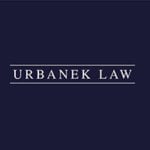-
Overview
a.The Cayman Islands maintains a title-by-registration system for real property, whereby the Registrar of Lands maintains a public register for each land parcel upon which registrable dealings are entered.
b. While the land registration system is primarily governed by legislation, case law will also apply and, in instances where there is no relevant local statute or case law, decisions in commonwealth jurisdictions may be considered.
c. The local real estate market has continued to produce stable results over the last 12 months:
- High-end condos on Seven Mile Beach continue to be in demand, with several major new development / redevelopment projects well underway. Of note, demolition and construction work has commenced on the much-anticipated Lacovia redevelopment project, a luxury residential project consisting of three ten-storey residential towers located at a prime section of Seven Mile Beach, and the ultra-luxury Watermark mixed use development along a prime section of Seven Mile Beach nears completion.
- The leisure and tourism sector remains active. Developments of note include the Mandarin Oriental resort and residences at Beach Bay, the Grand Hyatt resort and residences along Seven Mile Beach and the Kailani Grand Cayman resort and residences along Seven Mile Beach.
- In addition, the Cayman Islands’ largest developer, Dart Realty, completed and opened the Hotel Indigo near Seven Mile Beach. Dart Realty has also commenced construction of new ten storey commercial building within in its self-sufficient town known as Camana Bay.
- Construction nears completion on ONE|GT, a new hotel and residences in central George Town, which is set to kick-start revitalisation plans for the capital.
d. The impact of inflation, increased borrowing costs and global events have had a cooling effect on real estate activity, but the market remains relatively strong and is expected to see increased transaction volume during the latter part of 2025 and into 2026.
e. Set against this backdrop, non-traditional routes for borrowing have become increasingly popular, with consortiums of private lenders filling a niche space for borrowers that fall outside of lending criteria for traditional lenders.
-
What is the main legislation relating to real estate ownership?
a. Registered Land Act (2018 Revision)
b. Registered Land Rules (2018 Revision)
c. Strata Titles Registration Act (2013 Revision)
d. Strata Titles Registration Regulations (2006 Revision)
e. Development and Planning Act (2021 Revision)
f. Development and Planning Regulations (2022 Revision)
g. Building Code Regulations (Revised)
h. Stamp Duty Act (2019 Revision)
i. Land Holding Companies Share Transfer Tax Act (2022 Revision)
j. Property (Miscellaneous Provisions) Law (Revised)
k. The Prescription Act (2018 Revision)
l. The Public Lands Act (2020 Revision)
m. The Limitation Act (1996 Revision)
n. The Land Acquisition Act (1995 Revision)
o. Roads Act (2005 Revision)
p. Local Companies (Control) Act (2019 Revision)
q. The Trade and Business Licensing Act (2021 Revision)
r. The National Conservation Act, 2013
-
Have any significant new laws which materially impact real estate investors and lenders come into force in the past year or are there any major anticipated new laws which are expected to materially impact them in the near future?
a. At the time of writing, there are proposals to reform the law applicable to:
- mortgage enforcement, which will create a more consumer-friendly environment for those securing financing over Cayman Islands real estate;
- adverse possession, whereby the Cayman Islands Law Reform Commission is seeking comments to its discussion paper on whether or not to abolish or modify the doctrine;
- settled land, whereby the Cayman Islands Law Reform Commission is seeking comments to its discussion paper on whether not to abolish mechanisms for creating successive interests in land that are rarely used; and
- stamp duty, whereby the Cayman Islands Government plans to expand the range of stamp duty exemptions and abatements available to Caymanians as well as in relation to property on the sister islands of Cayman Brac and Little Cayman.
b. There are also longstanding proposals to modernise the Strata Titles Registration Act (2013 Revision) and update the Development Plan 1997.
c. The Cayman Islands Land Registry continues its work to implement e-conveyancing, and plans to propose a number of legislative initiatives to further streamline the land registration process.
-
How is ownership of real estate proved and are ownership records available for public inspection?
Title to real property is evidenced by registration at the Cayman Islands Land Registry. Certain real property is beyond the scope of the registered land system, such as public roads and coastal waters. Some canals and inland water are however located on registered land parcels.
The land register for a parcel of land indicates:
- whether title is absolute or provisional;
- whether title is freehold or leasehold;
- whether the land is private or crown land;
- the area of the land (approximate size only, unless a fixed boundary survey has been registered);
- the name and address of the owner(s);
- details of any matters of which the title has the benefit (e.g. appurtenances such as easements, positive covenants etc.); and
- details of any matters to which title is subject (e.g. easements, leases, restrictive covenants, financial charges etc.).
In broad terms, the land register is definitive and supported by a state-backed indemnity, although it can be subject to rectification to deal with matters such as error and fraud. There are other limits to this principle of indefeasibility of title, such as overriding interests and overriding statutes. In addition, indefeasibility of title does not protect a proprietor who has acquired real property absent valuable consideration or from any in personam liabilities.
The Land Register and documents filed therewith are open to public inspection upon payment of a fee.
-
Are there any restrictions on who can own real estate, including ownership by any foreign entities?
Generally speaking there are no restrictions on natural persons, trustees, incorporated bodies or unincorporated bodies (whether foreign or domestic) from becoming a registered proprietor of real property, although certain formalities may apply depending on the type of proprietor.
However, the carrying on of business from or in relation to real property may also require local business licensing. The ownership of one residential property for personal use and up to two further residential properties for rent will not generally be deemed to be carrying on business in the Cayman Islands, whereas the letting of any commercial real estate will generally be deemed to be carrying on business in the Cayman Islands.
There are restrictions designed to protect local businesses against foreign investors proposing to carry on business in the Cayman Islands. Foreign investors in real estate development projects willing to persevere will often be granted the necessary licences if their investment is substantial.
-
What types of proprietary interests in real estate can be created?
Real property is held as:
- freehold – held by the registered proprietor indefinitely; or
- leasehold – held by the registered proprietor for the term of the lease.
The Strata Titles Registration Act (2013 Revision) provides for the registration of a strata plan against a freehold or leasehold land parcel to create individual strata lots, each of which is registered with its own derivative title and the remainder held as ‘common property’ by a strata corporation. Strata titles are often used as a mechanism to govern multi-unit developments, such as office buildings, shopping centres and condominium developments.
The Registered Land Act (2018 Revision) allows for the registration of a volumetric plan against land parcel, a mechanism which allows the subdivision of a parcel into several three-dimensional parcels. In 2021 Appleby registered the first volumetric subdivision in the history of the jurisdiction.
A contractual licence can also be used to allow occupation or use of real property, but this is a personal right and does not create a registerable interest.
-
Is ownership of real estate and the buildings on it separate?
Not unless otherwise agreed. Real property includes land, all things growing on the land, buildings and other things permanently affixed to the land.
Title to real property is registered as one. However, by using strata titles, volumetric plans or leases, separate interests can be created with respect to land or airspace.
-
What are common ownership structures for ownership of commercial real estate?
The structures most commonly used are corporate structures, including Cayman Islands companies and foreign companies.
Because the Cayman Islands is a no-direct taxation jurisdiction (although see question 17), and real estate investment activities can be conducted though different structures, foreign investors are free to select their investment model based on factors (for example, taxation and investment regulation) not driven by Cayman regulation, except where participation may be marketed in the Cayman Islands.
REITs and real estate derivatives from Cayman Islands real estate are relatively uncommon due to the relatively small size of the jurisdiction and the taxable event that arises when an interest in land (including the equity capital of a land holding corporation) is transferred (see question 17), although there have been some instances of foreign REITs acquiring Cayman Islands commercial property (and there is at least one domestic REIT in that is in the process of being formed).
Institutional investment in the Cayman Islands is increasing as the size of projects require large amounts of capital. However, at least two-thirds of commercial real estate is held privately.
-
What is the usual legal due diligence process that is undertaken when acquiring commercial real estate?
There is no universally accepted market standard of due diligence when acquiring real property. It is the purchaser’s responsibility to conduct whatever due diligence it may deem prudent in the context of the transaction, with very little (if any) contractual warranties customarily offered by a seller and extremely limited scope for title insurance (save in respect of very large commercial transactions).
While the feature of indefeasibility of title is backed by a state indemnity, there are many exceptions.
The purchaser’s attorney should at least:
- review the title documents (i.e. a copy of the land register for the subject parcel and any connected or superior interests (e.g. the strata common property or the landlord’s title), together with a copy of all instruments noted on the title, a copy of the registry map and, if the property is leasehold, the lease and other ancillary documents);
- where the property is subject to leases, review those leases;
- raise enquiries with the seller. While there is no industry standard, these enquiries should at least ask about the state and condition of the property, disputes, compliance with laws, existence of unregistered adverse interests, boundaries, services etc. as well as any bespoke enquiries arising from the purchaser’s attorney’s wider due diligence; and
- consider raising additional enquiries with public and other bodies, such as the Lands & Survey Department, the Department of Planning, the Department of the Environment and relevant utility providers. The scope of such additional enquiries will depend on the nature of the transaction and receiving replies to such enquiries can take several weeks.
It is relatively uncommon for real property to be sold by way of transfer of the entity or structure through which it is held. In such cases, the process is typically the same but with the usual additional due diligence in respect of the relevant entity or structure.
Where the purchase of property is financed by external debt, the lender will usually have its own requirements for due diligence, including a report on title and legal opinion.
-
What legal issues (if any) are outside the scope of the usual legal due diligence process on an acquisition of real estate?
There are some real property interests that bind a purchaser even though the interest is not registered at the Land Registry. These are known as ‘overriding interests’, details of which are set out in the Registered Land Act (2018 Revision). Some of these rights may be apparent from inspection (e.g. occupiers), while others may be discoverable by raising enquiries with third parties (e.g. utility installations). Lawyers do not generally physically inspect real property as party of their work.
In addition, a professional inspection or survey is always advisable to ensure compliance with building control, health and safety, environmental and other matters relevant to the state and condition of the subject property. The nature and scope of such engagement will depend on the transaction. In particular, the boundaries shown on the registry map and area shown on the land register are approximate only unless a fixed boundary survey has been carried out and registered.
-
What is the usual process for transfer of real estate, and when does liability pass to the buyer?
Transaction Steps Seller Buyer Comments Heads of Terms (“HoT”) - Prepare and negotiate HoT
- Identify what consents are required (e.g. landlord’s consent if leasehold)
- Negotiate HoT
- Preliminary title check to identify any matters that need to be dealt with in HoT
- Identify local licensing requirements
HoT not binding save for agreed exclusivity and confidentiality provisions Pre-signing - Prepare draft agreement
- Prepare any ancillary documents (e.g. assignment of leases)
- Negotiate agreement
- Collate any pre-requisites to signing (e.g. corporate registers and constitutional documents, board resolutions)
- Carry out legal due diligence (see question 9)
- Arrange valuation and/or survey
- Negotiate agreement and ancillary documents
- Incorporate / register purchasing vehicle (if applicable)
- Apply for local licensing
- Collate any pre-requisites to signing (e.g. corporate registers and constitutional documents, board resolutions)
- No prescribed form of agreement or industry standard terms
- Agreement usually signed relatively quickly and conditional on matters such as consents / approvals, financing, title investigations, physical inspections etc.
Post-signing, pre-completion - Hold deposit
- Satisfy any seller conditions to closing
- Prepare completion statement (including apportionments)
- Prepare discharge/release of existing security (if applicable)
- Prepare Transfer of Land/Lease and any other Land Registry forms
- Collate any ancillary documents required by buyer (e.g. certificate of good standing etc.)
- For leasehold property, obtain landlord’s consent (if required)
- Answer any final requisitions of the buyer
- Provide consent to pre-closing searches
- Make arrangements for execution of Land Registry forms shortly before completion
- Pay deposit to seller’s lawyer
- Arrange financing (if required)
- Satisfy any buyer conditions to closing
- Satisfy any financing conditions precedent
- Agree completion statement (including apportionments)
- Review and approve Transfer of Land/Lease and any other Land Registry forms
- Request / collate any ancillary documents required for registration (e.g. certificates of good standing etc.)
- Set up bank accounts for any rent payments post-completion
- Ensure local licenses received
- Raise any final requisitions
- Register caution or pre-closing searches on behalf of buyer and lender (if applicable)
- Make arrangements for execution of Land Registry forms shortly before completion
- 5-10% deposit typically paid on signing, which will be forfeited if the buyer fails to complete after agreement becomes unconditional (unless failure is due to seller)
- Land Registry prescribed forms
- Pre-closing searches at Land Registry usually take around three days to register and afford a priority period of fourteen days
Completion - Execute Transfer of Land, ancillary documents and discharge/release of existing security (if applicable)
- Arrange completion meeting. Provide and receive closing deliverables
- Deposit released and balance of purchase price (after apportionments) received
- Pay off any existing financing
- Execute Transfer of Land, security documents (if any) and ancillary documents
- Attend completion meeting. Provide and receive closing deliverables
- Pay balance of purchase price (after apportionments)
- Most Land Registry forms need to be notarised
- Completion meetings are often held in person at the offices of the seller’s lawyer
Post-completion Notify utility companies, tenants, any landlord or other third parties of transfer (if applicable) (jointly with buyer) - Set up utilities accounts and notify tenants (including new rent payment instructions), any landlord or other third parties (e.g. strata corporation) of transfer (if applicable) (jointly with seller)
- Pay stamp duty and registration fees, submit all registrable documents to Cayman Islands Land Registry
- Deal with any Land Registry requisitions
- Stamp duty to be paid and Land Registry forms to be submitted within 45 days of first signature
- In practice, stamp duty paid and Land Registry forms submitted ASAP after completion and in any event within the pre-completion search priority window
Under common law, risk would pass to the buyer upon exchange of contracts. However, it is customary for the common law position to be reversed with the inclusion of an explicit contract term.
-
Is it common for real estate transfers to be effected by way of share transfer as well as asset transfer?
It is relatively uncommon as a purchaser would generally wish to acquire the asset without exposing itself to any liabilities of the corporate vehicle. There are no local tax advantages to structuring the purchase by way of share transfer.
It is, however, perfectly possible to structure an acquisition in this way and there may be valid reasons for doing so, particularly where the real property is sold as part of a going concern.
-
On the sale of freehold interests in land does the benefit of any occupational leases and income derived from such lettings automatically transfer to the buyer?
Yes – no formalities are required beyond the registration of the transfer of land. However, a lessee is afforded protection from a claim for non-payment of rent to the transferee to the extent the lessee has not received notice of the transfer.
Commonly transferors and transferees will enter into a formal assignment of leases where there are additional commercial terms between them.
-
What common rights, interests and burdens can be created or attach over real estate and how are these protected?
Relevant rights, interests and burdens that are registrable include:
- transfers of land;
- stays of registration, having the effect of temporarily ‘freezing’ the land register and affording priority to an anticipated registerable disposition;
- charges, easements, covenants (both positive and restrictive), profits, dedications to public use, inhibitions, cautions and restrictions; and
- leases where the term is more than two years (leases for two years or less can be registered voluntarily), variations and transfers by the tenant thereof. There is a separate land register for leasehold interests and a note of the lease is made in the encumbrances section of the land register for the freehold title.
It is also possible subdivide (either by dividing into smaller regular parcels, registering a strata plan or registering a volumetric plan), combine and alter the boundaries of registered land parcels.
A contractual licence can also be used to allow occupation or use of real property, but this is a personal right and does not create a registerable interest.
Unregisterable interests can be protected by lodging a caution forbidding the registration of dispositions of the land, lease or charge concerned and the making of entries affecting the same.
There are some real property interests that are protected even though the interest is not registered at the Land Registry. These are known as ‘overriding interests’, details of which are set out in the Registered Land Act (2018 Revision), and include, inter alia, title, easements or profits acquired or in the process of being acquired by prescription.
-
Are split legal and beneficial ownership of real estate (i.e. trust structures) recognised?
Yes, although it is not possible to register the beneficial ownership of real property as the land registration system only records the ownership of the legal estate.
-
Is public disclosure of the ultimate beneficial owners of real estate required?
Not directly – ultimate beneficial ownership information is not recorded on the Land Register for real property maintained by the Cayman Islands Land Registry. However, a person may search the records of the Cayman Islands Land Registry and, if an instrument or supporting document has been filed which contains such information, it may be inspected or copied.
-
What are the main taxes associated with real estate ownership and transfer of real estate?
Subject to limited exemptions (some of which are at the discretion of the Minister of Finance), ad valorem stamp duty is payable on:
i. the conveyance or transfer of any immovable property (freehold or leasehold):
- 7.5% of the higher of purchase price and market value, although concessions are available for Caymanian first time purchasers of lower value real property and any purchasers of lower value property in certain categories of new development; and
- usually paid by the purchaser;
ii. the grant of a lease of any immovable property:
- if the term exceeds thirty years, the same duty as on a sale based on the full market value of the leasehold interest in the real property; or
- if the term is thirty years or less:
a. where any premium or other valuable consideration other than or in addition to rent is provided, the same duty as on a sale based on the amount of the premium; and
b. where the consideration or any part of the consideration is rent:
-
- if the term is less than one year, 5% of the aggregate rent;
- if the term is one year or more, but does not exceed five years, 5% of the higher of average annual rent or market rent;
- if the term exceeds five years, but does not exceed ten years, 10% of the higher of average annual rent or market rent; or
- if the term exceeds ten years, 20% of the higher of average annual rent or market rent; and
3. usually paid by the tenant;
iii. debentures and legal or equitable mortgages or charges of immovable or movable property within the Cayman Islands:
- in the case of a debenture or a legal or equitable mortgage or charge of immovable property within the Cayman Islands:
a. where the sum secured does not exceed KYD300,000, 1% of the sum secured; or
b. where the sum secured is more than KYD300,000 (whether initially or after a further advance), 1.5% of the sum secured;
2. in the case of a legal or equitable mortgage or charge of movable property within the Cayman Islands, 1.5% of the sum secured (subject a maximum charge of KYD500 where the security instrument is granted by a Cayman Islands exempted company, a Cayman Islands ordinary non-resident company, a Cayman Islands exempted trust or a body corporate incorporated outside of the Cayman Islands or the security is over shares in a Cayman Islands exempted company or a Cayman Islands ordinary non-resident company); and
3. usually paid by the borrower; and
iv. policies of insurance for property within the Cayman Islands:
- 2% of the cost of the new or renewed property insurance premiums; and
- usually added to insurance premiums.
Subject to limited exemptions (some of which are at the discretion of the Minister of Finance), ad valorem share transfer tax is payable on the transfer or issue of equity capital in a land holding corporation at the rate of 7.5% of the proportionate value the entire land holding. A land holding corporation includes any partnership, foreign corporation, chartered corporation, mutual fund or incorporated company (but not a corporation sole or charitable corporation) holding any legal or beneficial interest (excluding interests created pursuant to bona fide security instruments) in landed property in the Cayman Islands (or interest in another land holding corporation). Landed property would include freehold interests in Cayman Islands real property and any leasehold interest where the original term exceeded thirty years.
In addition, most financial instruments and documents will attract a fixed rate of stamp duty in comparatively nominal amounts. Registrable instruments also attract relatively immaterial registration fees.
Subject to limited exceptions, real estate used for paid tourist accommodation attracts tax at 13% of the amount charged to each tourist.
There are no other domestic taxes or municipal rates currently payable on the occupation, acquisition, ownership or disposal of Cayman Islands real property or income deriving therefrom.
-
What are common terms of commercial leases and are there regulatory controls on the terms of leases?
The terms of leases are freely negotiable. However, certain covenants by the landlord and by the tenant are implied by the Registered Land Act (2018 Revision) unless otherwise expressly provided in the lease.
There are currently no legal restrictions on rent levels. Commercial lease terms will often provide for rent to be reviewed in line with the consumer price index (CPI), by a fixed percentage or by market review. Security deposits are a matter of contract and are not protected by law.
A lease term of five years is relatively common, and may include an option for the parties to renew for one or two further terms. The parties will often have regard to the stamp duty treatment of the lease when negotiating the lease term.
Unless expressly provided for in the lease, tenants of commercial premises do not have security of occupation or a right to renew at the end of the term. However, where a tenant continues to occupy premises with the consent of the landlord after the termination of the lease, the tenant will be deemed to be a tenant holding the premises on a periodic tenancy on the same conditions as those of the expired lease so far as those conditions are appropriate to a periodic tenancy.
A tenant can usually assign the lease or sublet/share occupation with the landlord’s prior consent. Change of control of a corporate tenant is usually prohibited without landlord prior consent.
A landlord generally has no residual liability under a lease after expiry or termination, or after a sale of the freehold interest. A tenant may continue to have liability depending on the terms of the lease.
Whether the landlord or tenant is responsible for insuring and repair the demised premises will depend on the nature of the lease. In leases of part of a building, for example, the tenant is usually responsible for repairing the non-structural components of its demise and the landlord responsible for insurance and maintenance of the building and common parts. It is usual for a landlord to recover its costs from each tenant through common area charges.
The landlord can generally terminate the lease if the tenant has breached a fundamental or essential term of the lease (these terms are usually specified in the lease). The landlord must first give the tenant written notice of the breach and allow the tenant an opportunity to remedy the breach within a reasonable time, failing which the landlord can terminate the lease. The tenant has a statutory right to apply to the court under the Registered Land Act (2018 Revision) for relief against forfeiture. Lease terms usually allow a landlord to terminate the lease if the tenant is subject to an adverse solvency event.
It is not uncommon for commercial leases to contain clauses for abatement of rent or part of it in the event of damage to premises that render the premises or part of them unusable. The landlord and the tenant may have termination rights in certain circumstances following substantial damage to the premises (for example, where there is major damage following a hurricane and the landlord elects not to rebuild or reinstatement of the building is not possible).
The tenant can terminate the lease on common law contractual principles if the landlord is in breach of a fundamental or essential term of the lease. The tenant can also terminate the lease if there is an express right to break the lease. Express termination rights for a breach by the landlord are not usually specified in the lease.
-
What remedies are commonly available for landlords in the event of a tenant breach of a commercial lease?
Certain terms are implied by the Registered Land Act (2018 Revision), but it is common for commercial leases to contain contractual remedies for breach. See 18 above.
-
How are use, planning and zoning restrictions on real estate regulated?
The following provide control mechanisms in connection with the development of land:
- Development and Planning Act (2021 Revision).
- Development and Planning Regulations (2022 Revision).
- The Development Plan 1997 (currently under review).
- Building Code Regulations (Revised).
- National Conservation Act, 2013.
A Central Planning Authority for Grand Cayman and a Development Control Board for the Sister Islands (Cayman Brac and Little Cayman) review and consider applications to obtain planning permission and take enforcement action where necessary.
Planning permission is required for any development of land or change of use. Development of land includes:
- carrying out building, engineering or other operations in, on, over or under any land;
- materially changing the use of any land or the use of any building on the land; and
- subdividing land.
The following exclusions apply:
- Where renovations, alterations or improvement works are being carried out on the interior of a dwelling house and do not materially affect the external appearance of the dwelling house.
- Enlargements of a dwelling house within certain limits.
- Carrying out certain works by government personnel.
-
Who can be liable for environmental contamination on real estate?
Environmental liabilities are not always dealt with in sale contracts, but where they are it is typically by way of a representation and warranty that the seller is not aware of any environmental damage or incidents in respect of the property.
The Development and Planning Act (2021 Revision) empowers the Central Planning Authority to serve a remediation notice where it considers that the amenity of an area is adversely affected by reason of, inter alia, the ruinous, dilapidated or other condition of any structure or by the condition of land due to the deposit of any refuse or spoil. The remediation notice can be served on the owner or occupier of the land or building or the person responsible for causing the condition of the land or building.
The National Conservation Law, 2013 establishes a council whose role is to promote the conservation of natural resources, including preservation of wetlands and wetland resources, habitats and conservation of wildlife. The law provides for the creation of protected areas on Crown land or on private land with the agreement of the proprietor of the land. Developers should consider any potential effect this law might have on development plans, and should make inquiries when purchasing raw land to determine whether any conservation agreements have been entered into with respect to the land.
In addition, polluters, owners and occupiers could be the subject of a civil action for environmental harm.
There are no statutory provisions that expose a lender to environmental liability, but there is potential liability for any lender that takes possession of premises after default on its security.
-
Are buildings legally required to have their energy performance assessed and in what (if any) situations do minimum energy performance levels need to be met?
There are no such legal requirements, although Government initiatives, private sector innovation and buyer/tenant objectives have combined to create a vibrant sustainability culture.
-
Is expropriation of real estate possible?
Yes – the Cayman Islands government can compulsorily acquire any land. This is normally the result of establishing new public roads, but can also be done in other circumstances. Compensation is payable, and is generally at the property’s market value.
-
Is it possible to create mortgages over real estate and how are these protected and enforced?
Yes. Here are some typical forms of security relevant to real property financing:
- Legal charge.
- Debenture (corporate borrowers only).
- Legal or equitable mortgage/charge over shares in a company that holds the real property.
- Assignment of rental income.
- Assignment of insurance proceeds.
- Guarantees from shareholders, related companies or individuals.
Legal charges over real property must be registered at the Land Registry. Debentures creating fixed and floating charges are noted on the title for the real property if related to a registrable legal charge, but are not capable of being registered in their own right. Charges over shares are recorded on the register of members for the company.
Assignments by way of security are usually created by deed and notice must be given to the counterparty to perfect the security.
Enforcement by lenders would generally proceed by way of appointment of receiver and/or exercise of the lender’s power of sale. The process of enforcement will be governed by the terms of the security instrument and, in the case of security over real property, the Registered Land Act (2018 Revision).
Securitisations involving Cayman Islands real property are generally not common given the size of the jurisdiction. Sale and leaseback transactions are also not common, due in part to the high level of stamp duty that would be payable on the transaction.
-
Are there material registration costs associated with the creation of mortgages over real estate?
See question 17 for a breakdown of stamp duty applicable to security interests over Cayman Islands real property. Registration fees are immaterial.
-
Is it possible to create a trust structure for mortgage security over real estate?
Yes, a security trustee can hold security on trust for multiple lenders. The beneficiaries of the security can change without any changes being required to the security documentation. The security trustee can enforce the security on behalf of the beneficiaries.
Cayman Islands: Real Estate
This country-specific Q&A provides an overview of Real Estate laws and regulations applicable in Cayman Islands.
-
Overview
-
What is the main legislation relating to real estate ownership?
-
Have any significant new laws which materially impact real estate investors and lenders come into force in the past year or are there any major anticipated new laws which are expected to materially impact them in the near future?
-
How is ownership of real estate proved and are ownership records available for public inspection?
-
Are there any restrictions on who can own real estate, including ownership by any foreign entities?
-
What types of proprietary interests in real estate can be created?
-
Is ownership of real estate and the buildings on it separate?
-
What are common ownership structures for ownership of commercial real estate?
-
What is the usual legal due diligence process that is undertaken when acquiring commercial real estate?
-
What legal issues (if any) are outside the scope of the usual legal due diligence process on an acquisition of real estate?
-
What is the usual process for transfer of real estate, and when does liability pass to the buyer?
-
Is it common for real estate transfers to be effected by way of share transfer as well as asset transfer?
-
On the sale of freehold interests in land does the benefit of any occupational leases and income derived from such lettings automatically transfer to the buyer?
-
What common rights, interests and burdens can be created or attach over real estate and how are these protected?
-
Are split legal and beneficial ownership of real estate (i.e. trust structures) recognised?
-
Is public disclosure of the ultimate beneficial owners of real estate required?
-
What are the main taxes associated with real estate ownership and transfer of real estate?
-
What are common terms of commercial leases and are there regulatory controls on the terms of leases?
-
What remedies are commonly available for landlords in the event of a tenant breach of a commercial lease?
-
How are use, planning and zoning restrictions on real estate regulated?
-
Who can be liable for environmental contamination on real estate?
-
Are buildings legally required to have their energy performance assessed and in what (if any) situations do minimum energy performance levels need to be met?
-
Is expropriation of real estate possible?
-
Is it possible to create mortgages over real estate and how are these protected and enforced?
-
Are there material registration costs associated with the creation of mortgages over real estate?
-
Is it possible to create a trust structure for mortgage security over real estate?





























